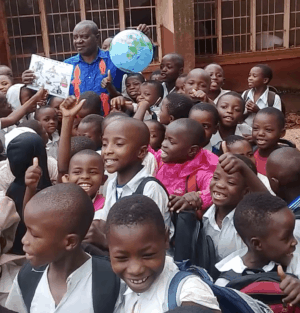
A joyful day in Cimpunda: Back to school, with clean hands
Posted on Nov 13, 2020
“Today we taught 817 children about proper handwashing at the Furaha primary school,” says Mama Salomé. These photos & videos will cheer you!


Posted on Nov 13, 2020
“Today we taught 817 children about proper handwashing at the Furaha primary school,” says Mama Salomé. These photos & videos will cheer you!
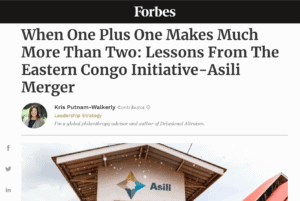
Posted on Aug 20, 2020
"The ECI-Asili merger, while still a work in progress, offers a useful perspective for any philanthropy that sees an opportunity to have more impact." — Kris Putnam-Walkerley, Forbes
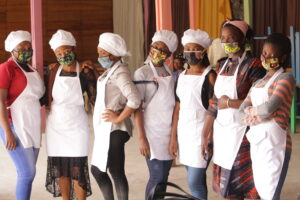
Posted on May 19, 2020
Months ago, Un Jour Nouveau (UJN), a local community organization in the Congo, was planning to use $500 in capital from ECI to strengthen their dressmaking program, a social enterprise that helps women in North Kivu uplift their communities with training in business, leadership and in-demand skills. UJN planned to use half the money to set up a display of students’ handmade clothing at the 2020 Women Of Congo exhibition, and to use the other $250 to buy fabric and supplies. As the pandemic overtook their plans, the women’s entrepreneurial agility transformed that $500 grant into infinitely more.
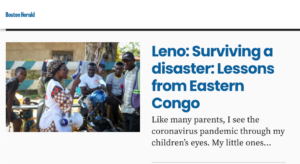
Posted on May 11, 2020
Living in conditions of fragility and scarcity is a profound misfortune, to be sure. But misfortune survived turns into enduring wisdom. At this moment of global crisis, I want to share some simple ideas I have learned from a lifetime of partnership with people who have been through the unimaginable and survived.
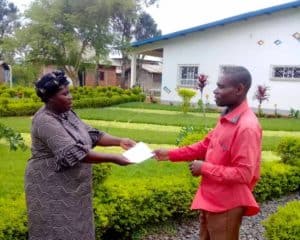
Posted on May 01, 2020
Traditional humanitarian aid is built for emergencies, not for people. We know we can do better — because we do better every day. Even during the pandemic.
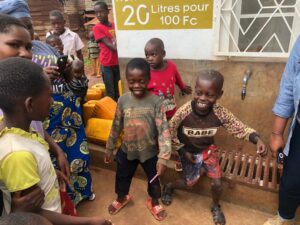
Posted on Apr 29, 2020
In DRC and other difficult places, where suffering is unavoidable, people find reasons to live with their suffering. I have seen people find the most sustaining reasons for living when living is hardest to bear.
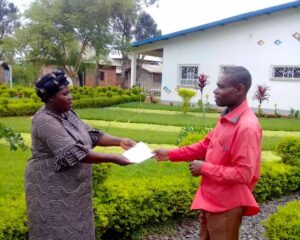
Posted on Apr 28, 2020
A disaster, even a very long-lasting one, has a beginning and an end. It is important to remember that we were human before the disaster, and we will be human after the disaster too. During times of crisis, our most important duty is to meet people’s most immediate needs — safety, shelter, medical care, food and water. But everyone’s humanity transcends those urgent needs. .
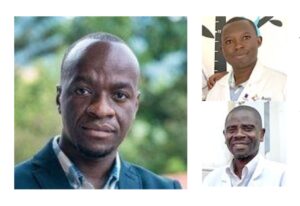
Posted on Apr 27, 2020
It isn’t just health care professionals who have the opportunity to be powerful in this moment of crisis. Around the world, essential workers are building their own power every time they make a delivery, clean a toilet, or cook a meal. And in doing their work, these essential workers — like Georges, Pierre, and Dr. Johny — are giving the rest of us the power we need to get through the pandemic.
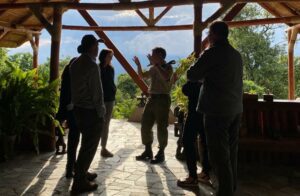
Posted on Apr 27, 2020
As executive director of ECI, it gives me great pride to see that our teams in Congo are as committed as ever to serve their own people. Our programs are resilient, our staff is the best in the world, and our mission to serve the Congolese people is stronger than ever.
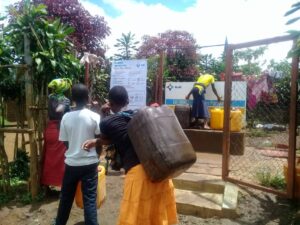
Posted on Apr 26, 2020
In a crisis that requires handwashing, clean water is indispensable. In a crisis that demands quarantine and medical treatment, clinics and clinicians are indispensable. If our businesses were to survive to serve our communities after the pandemic, we had to serve our communities during it — cost what it might. If you are in the position to make choices about whom to help during this disaster, be aware of what you are doing. How you use the power you have right now will clarify what business you are in.